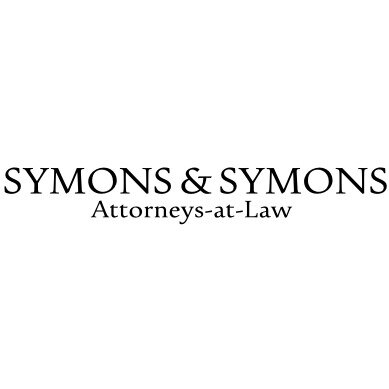Best International Trade Law Lawyers in Cayman Islands
Share your needs with us, get contacted by law firms.
Free. Takes 2 min.
Or refine your search by selecting a city:
List of the best lawyers in Cayman Islands
About International Trade Law in Cayman Islands
International trade law in the Cayman Islands operates within a framework that balances global trade regulations with local legislation tailored to its unique economic environment. As an offshore financial center, the Cayman Islands plays a significant role in international business transactions. The jurisdiction has specialized in offering a range of services including banking, insurance, company formation, and investment management. International trade law in this context involves regulations governing the flow of goods, services, and financial capital across borders, compliance with global trade agreements, and adherence to international standards of trade conduct.
Why You May Need a Lawyer
Engaging a lawyer specializing in international trade law in the Cayman Islands is crucial for several reasons:
- Cross-border Transactions: Businesses engaging in overseas trade require expertise in navigating complex trade agreements, customs regulations, and tariffs.
- Compliance and Regulatory Issues: A lawyer ensures compliance with both international laws and local regulations, including export-import laws, and anti-money laundering laws.
- Dispute Resolution: Legal disputes may arise from contract violations or trade practices, requiring expert arbitration or litigation services.
- Intellectual Property Protection: Protecting trademarks and patents when trading internationally requires specialized legal advice to prevent infringements.
- Mergers and Acquisitions: Legal guidance is essential when undertaking cross-border mergers and acquisitions.
Local Laws Overview
The Cayman Islands' legal framework for international trade law includes key aspects such as:
- Customs Regulations: The Customs and Border Control Law governs the import and export of goods, establishing procedures for declarations, duties, and enforcement.
- Financial Services Law: The Islands' financial services laws regulate activities related to banking, insurance, and investment funds, vital for international trade.
- Anti-Money Laundering Regulations: Businesses involved in international trade must adhere to strict anti-money laundering standards to prevent illicit financial flows.
- Intellectual Property Laws: Trademark and patent protection are essential for businesses engaged in global markets and are covered by the Trade Marks Law and Patents and Trade Marks Law.
Frequently Asked Questions
What is the role of international trade law in the Cayman Islands?
International trade law governs the rules of trade between countries. In the Cayman Islands, it facilitates international business transactions by ensuring compliance with global trade practices and regulations.
How do I ensure my business complies with Cayman Islands' trade regulations?
Consulting with a legal expert in international trade law will provide guidance on complying with local customs duties, licensing requirements, and financial regulations.
Are there any restrictions on foreign investment in the Cayman Islands?
The Cayman Islands generally encourage foreign investment, with few restrictions. However, specific sectors may have regulations overseen by relevant authorities.
What should I do if I have a trade dispute?
If a dispute arises, seek legal counsel to explore options such as negotiation, mediation, or arbitration to resolve the issue efficiently.
How are tariffs and duties applied in the Cayman Islands?
Tariffs and duties are levied based on the Customs and Border Control Law, depending on the type and origin of goods. Legal advice can clarify specific obligations.
Can I protect my intellectual property internationally from the Cayman Islands?
Yes, the Cayman Islands has provisions under the Trade Marks Law and Patents and Trade Marks Law to help protect intellectual property in international trade.
What are the important trade agreements affecting the Cayman Islands?
The Cayman Islands benefits from international agreements, such as the CARICOM treaty, which influence local trade practices without being signatory to many treaties.
How are international trade contracts enforced in the Cayman Islands?
Contracts are enforced under the principles of contract law, with the possibility of international arbitration clauses to resolve potential disputes.
Do I need a license to import or export goods in the Cayman Islands?
Yes, specific licenses and permits are required for importing and exporting goods, subject to regulatory compliance under the Customs and Border Control Law.
What are some obligations under the anti-money laundering laws for businesses involved in international trade?
Businesses must establish due diligence, monitor transactions for suspicious activities, and report any such activities to the authorities to comply with anti-money laundering laws.
Additional Resources
Here are some resources and organizations that can assist with international trade law inquiries:
- Cayman Islands Department of Commerce and Investment: Provides information on business licensing and investment regulations.
- Cayman Islands Government: Offers updates on customs regulations, tariffs, and trade compliance.
- The Cayman Islands Chamber of Commerce: Provides networking opportunities and resources for businesses engaged in trade.
- Cayman Finance: An organization representing the financial services industry, helping businesses with financial compliance.
Next Steps
If you need legal assistance in international trade law:
- Conduct an initial consultation with a legal expert specializing in international trade to evaluate your specific needs.
- Gather all relevant documentation concerning your business activities and trade operations.
- Examine current trade practices and seek advice on regulatory compliance.
- Develop a comprehensive legal strategy to handle trade relations and potential disputes.
- Stay informed about changes in local and international trade laws that may impact your operations.
Lawzana helps you find the best lawyers and law firms in Cayman Islands through a curated and pre-screened list of qualified legal professionals. Our platform offers rankings and detailed profiles of attorneys and law firms, allowing you to compare based on practice areas, including International Trade Law, experience, and client feedback.
Each profile includes a description of the firm's areas of practice, client reviews, team members and partners, year of establishment, spoken languages, office locations, contact information, social media presence, and any published articles or resources. Most firms on our platform speak English and are experienced in both local and international legal matters.
Get a quote from top-rated law firms in Cayman Islands — quickly, securely, and without unnecessary hassle.
Disclaimer:
The information provided on this page is for general informational purposes only and does not constitute legal advice. While we strive to ensure the accuracy and relevance of the content, legal information may change over time, and interpretations of the law can vary. You should always consult with a qualified legal professional for advice specific to your situation.
We disclaim all liability for actions taken or not taken based on the content of this page. If you believe any information is incorrect or outdated, please contact us, and we will review and update it where appropriate.
Browse international trade law law firms by city in Cayman Islands
Refine your search by selecting a city.

















